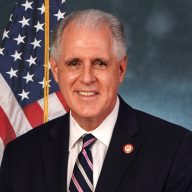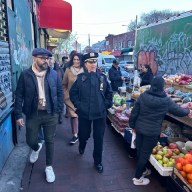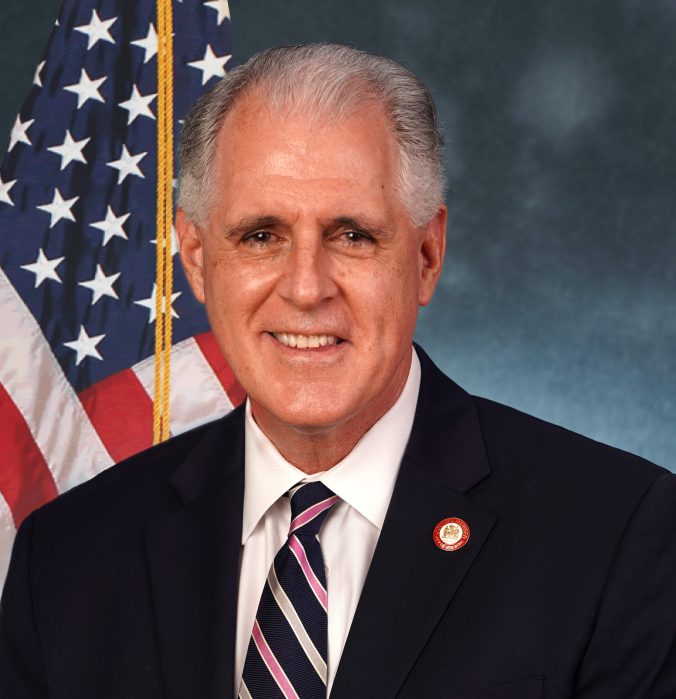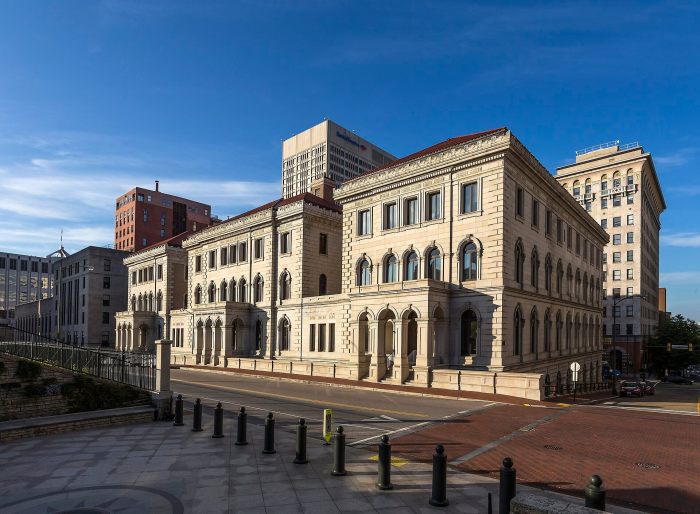By Bob Harris
Several articles in the November 2001 issue of the West Cunningham Park Civic Association told about the concern that the owner of the Klein Farm on Union Turnpike and 195th Street plans to sell to a developer who wants to build 22 two-family houses on the two-acre plot. Although the area is zoned for residential homes, in 1974 the residents of the community had the area turned into a Special Planned Community Preservation district to prevent the then owner of the Fresh Meadows Development from tearing down the magnificent Oak Grove and building apartment houses. A hearing has to be held before anything is torn down or anything new built.
The articles in the newsletter explained that several of the neighboring civic associations had created the Klein Farm Task Force to preserve this last working private farm in New York City. Already several people have volunteered to testify for preserving the farm if public hearings are held.
This topic was brought up at the December meeting of Community Board 8. It was pointed out that if the farm is sold and a developer buys the land and wants to develop it, there has to be a public hearing of the area committee of Community Board 8 and then the whole board has to meet and vote on the proposal. This would be an advisory suggestion. The issue would then go to the City Planning Commission and then to the new New York City Council.
There are no plans yet and there is no word as to who the proposed buyer is. Interested citizens would be needed to testify at the hearings. Councilman David Weprin is working closely with the community.
The November/December 2001 issue of the Civic Association of Utopia Estates newsletter provided an update on the Klein Farm printed in the Fresh Meadows Times and written by reporter Adam Kramer. It was discussed that a public review hearing called a ULURP will have to be held. It is hoped that interested residents will testify if proposals are presented. Those interested in taking action should call Bob Harris at 468-4298 or Judy Schwartz at 464-7069.
Good News of the Week
It has just been announced that Jacqueline Langsam has been appointed chief of operations for Queens parks. This is the second-highest Queens parks position. We in Fresh Meadows know her as the former manager of Cunningham Park where she was accessible and helpful. She attended meetings of the West Cunningham Park Civic Association and other civics to give reports and answer questions about the rehabilitation and repair of this very heavily used park. I hated to see her leave although her replacement is keeping Cunningham park clean.
Langsam was a resident of Whitestone and she had been the administrator of Forest Park. We are happy for her promotion and know that because she knows Cunningham Park she knows that resources will be necessary to rehabilitate this very popular and often very crowded and worn park.
Bad News of the Week
Congress has been debating a new 10-year, $170 billion farm bill although the old one does not expire until next June. For decades Congress has provided subsidies to farmers who would have been forced off their land by lower farm prices due to surplus production. The fact that all the representatives and senators from the farm states work together as the “farm bloc” gives them clout. The down side is that we, from wealthier states, provide the money to the farmers and the higher subsidized prices for farm commodities means that consumers pay higher prices for the food they eat.
This year there is an attempt in Congress to reduce the $20 billion a year paid out as farm subsidies to about $17 billion annually by requiring more conservation in return for the money and to limit the amount paid to individual farmers by limiting the amount that can be paid to each farmer and by having a means test for payments.
It seems that 8 percent of the farmers receive nearly half of the $20 billion in annual farm payments. Many of these wealthiest farmers are really large corporations who receive millions because they are big and not necessarily in need of money to survive. It is a fact that many small farmers take jobs in nearby towns and cities just to earn money to pay the taxes on their land.
To add to the problem is the fact that there will soon be a new World Trade Organization round of trade talks which will include agricultural products. Any agreement will not permit certain types of government subsidies. For consumers a new agreement could mean lower prices for food we buy. Also, our farmers sell wheat and other products overseas and they also want to be able to be able to continue selling overseas so certain types of subsidies can’t be given to our farmers. Hopefully Congress can get it right!
































